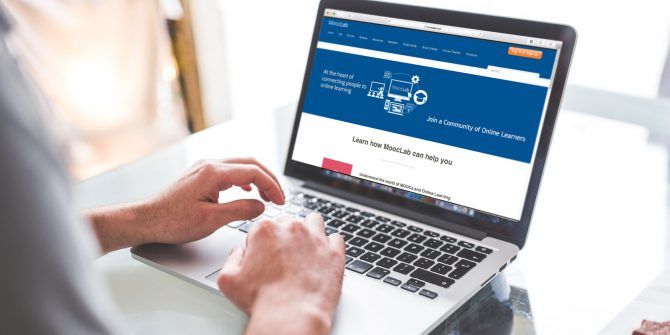X Online Learning
If you’re new to online learning, first of all, WELCOME! Learning online is a fantastic way to increase your knowledge and skills in a unique, flexible environment with its own distinct strengths and opportunities.
X Exclude words from your search Put - in front of a word you want to leave out. For example, jaguar speed -car Search for an exact match Put a word or phrase inside quotes. For example, 'tallest building'. Search for wildcards or unknown words Put a. in your word or phrase where you want to leave a placeholder.
Whether you’re trying online classes for the first time or looking for ways to strengthen your current habits and approaches, there are a few key areas to consider to set yourself up for success and take full advantage of all online learning has to offer.
In this collection of online learning best practices, we share tips and strategies to help you succeed in your learning journey, including ways to:
- Keep your mind and body healthy
- Effectively manage your time and minimize distractions
- Forge connections with your virtual learning community
- Get the most out of your learning
- Conquer logistics
- Join Coursera for free and learn online. Build skills with courses from top universities like Yale, Michigan, Stanford, and leading companies like Google and IBM. Advance your career with degrees, certificates, Specializations, & MOOCs in data science, computer science, business, and dozens of other topics.
- Online classes are offered in a variety of disciplines including courses in business, computer science, economics, English, geography, geology, history, humanities, mathematics, philosophy.
Looking for more strategies for online learning success? Learn about online learning while experiencing it: Take our How to Learn Online course, where you’ll dive into some of the most powerful, science-backed techniques that you can start using right away and on any learning platform.

Self Care
Self-care is important to your successful learning experience. A healthy mind (and body) is a mind ready for learning.
- Advocate for your learning needs: Ask for flexible ways of participating in the class that work for you. This is important for learners who require specific accommodations, such as a note taker or extended test time, but is also important for all learners.
- Schedule breaks: Get up and walk around, go outside, schedule your distractions, don’t forget to move. Plenty of apps exist to keep you on task and turn off distractions, as well as remind you to get up and take breaks.
- Maintain healthy habits: Your brain, like your body, needs rest and exercise. Get sleep, stay hydrated, go outside, eat well.
Time Management

One of the biggest benefits of online learning is flexibility, but too much freedom can pose new challenges. Find ways to structure and optimize your time for when and where you learn best and keep your learning on track.
- Set aside time for learning: This doesn’t mean you need to find four-hour blocks, three days a week. Online learning is designed to be modular and flexible. You may find 15 minutes to watch a short video lecture and write a three-sentence reflection post. But of course, other learning activities will require more time. Be planful and dedicate time to learn as you would to exercise or spending time with friends.
- Track deadlines: Add important due dates to a calendar so you don’t miss important deadlines.
- Minimize distractions: As much as you can, minimize distractions both in your physical environment and your digital environment. Close web browser windows not relevant to your learning, keep the TV off, etc.
Community and Social Learning
Online learning comes with connections to both world-class professors and a global community of passionate classmates. Find ways to connect with these rich learning communities, from participating in forums to networking with peers.
- Keep your instructor informed: Ask your instructor for help when you need it—let them know if you are ill, unable to log on, etc.
- Virtually meet and interact with your learning peers: You are not alone! Introduce yourself, answer questions posted by the instructor in the discussion forums, and respond to your peers’ posts.
- Create a social network group: In addition to forums, create a distinct space, such as a Facebook group or a Whatsapp chat, for you and your classmates to connect, share interests, and support each other.
- Create virtual study groups: Keep the line open and find ways to connect with your learning peers in small study groups. Video chat apps are a great way to do this.
- Give and expect respect: Especially during asynchronous communication like discussion boards and email, it can be easy to misconstrue someone’s meaning. Like you, your peers are real people. Do your part to foster a respectful, supportive community.
Learning Strategies
In our modern learning landscape there is vast amounts of content about virtually any topic to watch, read, and listen to, but knowing is different from doing. To get the most out of online learning, make sure you develop new knowledge and skills in a way that you can retain, apply repeatedly, and adapt to new contexts.
- Make your learning stick: Take advantage of the established learning science principles of practice, application, and reflection. To ensure your newly learned knowledge and skills stick with you, it’s important to repeatedly practice skills, apply knowledge in different contexts, and reflect on what you have learned, especially as you practice and apply in new settings. A well-designed learning experience will provide you with opportunities to practice, apply, and reflect, but you can reinforce your learning outside of a class by connecting it to your everyday life and work.
- Video strategies: For recorded video, pause and write a brief summary of what you have heard in notes every few minutes. For live video, especially if the video is available to watch later, avoid taking notes. Pay attention to what you are hearing and participate in the discussion to help keep your focus. Raise your virtual hand or ask a question in the chat.
- Take advantage of video break-out groups: If offered, these live, small group discussions will give you a chance to hear other perspectives or review challenging material as a group.
Logistics
Tri-c Online Learning And Academic Technology
Last but not least: logistics. Nailing the details of your learning experience can pay back dividends.
- Make relevant information easily accessible: Collect the phone numbers, email addresses, and support links for your institution in one place so, if and when you need it, you don’t have to go hunting. For example, who are the TAs for the course and how do you contact them? If you have technical issues, which department do you contact?
- Gather your tech: If the course requires video conferencing software, download the app and test well before a live lecture begins. If assignments are uploaded to a cloud service (e.g., Google Drive, Dropbox), make sure you have the required account details or access information in advance of a deadline.
- Minimize reliance on WiFi: If possible, use an ethernet cable and download course materials to work offline. Many online courses work in mobile, too, but others do not. Have a plan for Internet access.
- Always save your work: Save your work locally on your computer and/or in the cloud where you can easily access it. For example, draft essays in a word processing application or in an email to yourself then cut and paste your work into the course LMS (learning management system) to turn in your assignment.
Start Learning
As a global nonprofit, our goal is to continue to be a resource to the growing online learning community. Explore edX online courses and programs across a broad range of subjects, find more tips and inspiration in our collection of advice from edX online learners, and share your own tips on our Instagram stories and Facebook group.
C++ Online Learning
To learn more about online learning, check out our How to Learn Online course. Designed for those who are new to eLearning, this course will prepare you with strategies to be a successful online learner.


The MIT Open Learning Library is home to selected educational content from MIT OpenCourseWare and MITx courses, available for free to anyone in the world at any time.
MIT is committed to sharing learning materials with the world. The Open Learning Library provides additional opportunities to learn from MIT at your own pace, engaging with interactive problems and receiving instant feedback.
Interactive Assessments and Progress Tracking
One advantage to using the MIT Open Learning Library (OLL) is that, by creating a free account, you will be able to keep track of your progress as you work your way through a course and to see the answers you’ve submitted to problems within the course – just as you can with MITx on edX courses. However, Open Learning Library does not include discussion forums, certificates, or the ability to transfer your progress to MITx on edX.
Open Learning Library resources designated as OCW content are free to download, remix, and reuse for non-commercial purposes. Resources designated as MITx content have varying licenses: some are All Rights Reserved, others Creative Commons, and some have mixed licenses. You will see the license type indicated on the About Pages.
How MIT Open Learning Library Differs from MIT OpenCourseWare and MITx on edX
You can think of OCW, MITx, and Open Learning Library along a spectrum of learning scenarios, in which MIT content is presented in different formats to meet different user needs.

- MITx courses on edX are end-to-end course experiences with optional certificates available for you to earn, live teaching support and interaction with other learners in discussion forums, and start and end dates.
- MIT OpenCourseWare offers a completely self-guided experience with published content from MIT courses that is open all of the time and licensed for download, remix, and reuse, but does not offer certificates nor interaction with teachers and learners.
- MIT Open Learning Library sits in between MITx on edX and OCW. As in many MITx courses, Open Learning Library provides interactive course experiences that include auto-graded assessments that give you instant feedback and allow you to track your progress as you work your way through the subject matter. Like OCW, this content is always open and self-guided and includes no live support, discussion forum, or certificates.
Tri-c Online Learning
Some Description | |
Instructor(s) | Prof. |
As Taught In | Spring 2002 |
Course Number | 2.24 |
Level | Undergraduate/Graduate |
Features | Lecture Notes, Student Work |